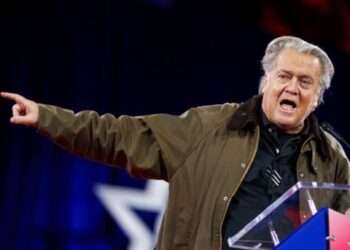President Trump Signs Memorandum Directing National Guard, ICE To Memphis, Tennessee
President Trump, joined by state and federal officials, announced a new coordinated law enforcement initiative in Memphis aimed at restoring public safety. The effort, led by the U.S. Marshals Service alongside 22 federal agencies and dozens of local departments, will target violent crime through block-by-block enforcement. Tennessee Governor Bill Lee and other leaders praised Trump’s leadership, crediting his administration for prioritizing law and order and providing unprecedented federal support to local police.
Trump highlighted recent successes in Washington, D.C., claiming historic reductions in crime after federal deployments, and promised similar results in Memphis, Chicago, St. Louis, and New Orleans. He argued public safety is not partisan but fundamental to Americans’ ability to live, work, and worship in peace.
The President also spoke about broader issues: criticizing violent left-wing groups, suggesting Antifa could be designated a domestic terrorist organization, and raising the possibility of RICO charges against funders of violent protests. He expressed frustration that previous administrations tied police officers’ hands, saying under his leadership they will no longer tolerate assaults, spitting, or attacks on federal agents.
Trump cited victories on border enforcement and drug interdiction, including recent seizures of cocaine and fentanyl at sea, claiming cartels are being forced to retreat. He tied these measures to his broader theme of making America "safe again,” linking local safety to national strength.
Answering questions, Trump commented on internet radicalization in the wake of political violence, warning parents to monitor children’s online activity. He also reflected on the assassination of conservative activist Charlie Kirk, pledging to speak at his funeral and praising Turning Point USA’s rapid growth in his memory.
Closing, Trump reaffirmed his commitment to aggressive federal involvement, declaring: "We’re going to make our cities safe together.”
Pt.1:
President Trump On If He Will Designate Antifa A Terrorist Organization
Pt.2:
Phil Lyman: While Everyone Was Hiding There Was A Group Of Kids That Weren’t Hiding. They Weren’t Afraid, They Knew Something The Rest Of The People In That Crowd Didn’t Know
Phil Lyman, former Utah gubernatorial candidate, recounted his experience at Charlie Kirk’s Utah Valley University event on the day of the shooting. Lyman arrived early, spoke with Kirk beforehand, and described the rally as upbeat and electric, with Kirk tossing hats and engaging students. He emphasized Kirk’s personal touch, recalling how Kirk paused to personally hand a hat to a disabled attendee, calling it an example of his character.
When the gunfire erupted around 12:23, Lyman was near the back of the venue. He saw most attendees ducking for cover behind barriers, confused and fearful. What stood out to him, however, was a small group — whom he identified as LGBTQ activists — who did not panic. Unlike the rest of the crowd, they did not hit the ground or attempt to flee. Instead, one of them reportedly shouted a crude remark at the retreating crowd. To Lyman, their calm demeanor suggested prior knowledge or awareness that set them apart from the rest of the audience.
He stressed that the event felt like more than a random attack, raising unanswered questions about organization and motive. His testimony added weight to calls for a broader investigation into the networks behind the shooting.
Pt.1:
Lyman: People Aren’t Giving Spencer Cox The Benefit Of The Doubt, Which They Shouldn’t
Pt.2:
DeGrasse On The Redistricting Fight In Indiana: “I’m Optimistic But We Need To Keep Pushing”
Steve Bannon praised the Indiana grassroots, calling them the "backbone of the country,” while stressing that the GOP establishment lags behind its base. Alex DeGrasse confirmed that despite nerves, Saturday’s event went forward because Kirk would have wanted it, and it demonstrated overwhelming grassroots resolve. The War Room cast the Indiana fight as a "9–0 test” — nothing less than total victory will do — against entrenched Pence/Mitch Daniels–style Republicans.
They then shifted to New York, where DeGrasse warned that Democrat candidate Mondaire Jones (backed by Working Families Party and DSA) is poised to win big, with Kathy Hochul bending the knee to the far left. He linked the rise of radical Democrats to dark-money pipelines from Soros-aligned nonprofits and foreign actors, arguing it resembles a hybrid Marxist-jihadist movement. Bannon emphasized that Antifa must be labeled a terrorist organization, with RICO used to follow the money. Both men stressed urgency: from Indiana to New York, grassroots pressure, information sharing, and aggressive legal tools are essential to break establishment control and counter left-wing networks.
Bradley Thayer: Designating Antifa A Terrorist Organization Is A Recognition Of Reality
Dr. Bradley Thayer told Steve Bannon that the president’s openness to label Antifa a terrorist organization is a crucial, long-overdue step. Thayer framed terrorism as violence or threats used to pursue political ends and argued Antifa fits that definition by seeking to undermine or overthrow the constitutional republic. He urged a "whole-of-government” and "whole-of-society” counterterrorism strategy: methodical, layered investigation that peels back operational tiers to expose financiers, political operatives, media enablers, law firms, and NGOs that allegedly fund and direct street-level violence.
Thayer compared the work to excavating Troy — you must dig through many strata to reveal international and domestic connections, which he said may include the Chinese Communist Party and major Democratic donors. He emphasized that the most important targets are the top layers (money, logistics, communications), not just the foot soldiers, and advocated using tools like designation and RICO-style financial probes to seize bank records, phones, and accounts.
Thayer warned the inquiry will be arduous and potentially alarming to the public but predicted pressure would fracture networks. He referenced past movements (e.g., Occupy) as antecedents and noted his documentary work on radical organizing. Both he and Bannon framed designation plus legal and financial scrutiny as essential to exposing and dismantling the alleged infrastructure behind violent left-wing extremism, promising further briefings and public revelations.

![Bannon’s WarRoom, Show Clip Roundup 11/4/2024 [AM]](https://warroom.org/wp-content/uploads/2024/11/bannonsteve_022424gn06_w-350x250.webp)


